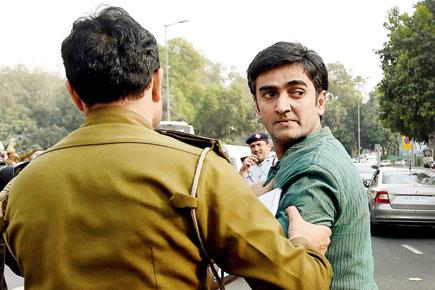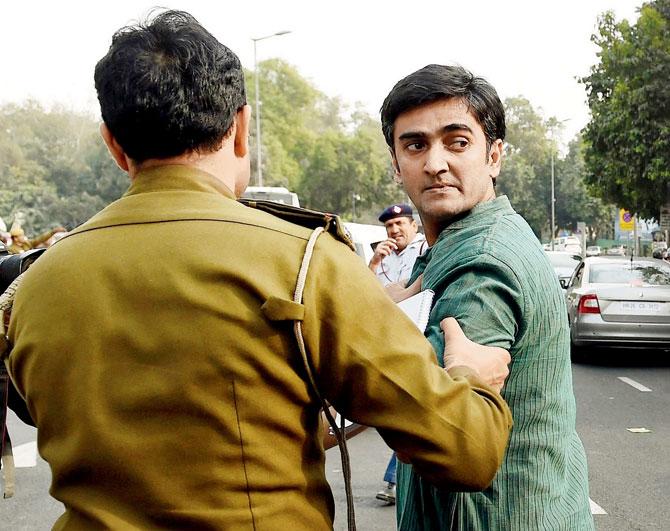We are a country addicted to soap operas and the daily soap is, arguably, the most influential narrative form of this century for India

 We are a country addicted to soap operas and the daily soap is, arguably, the most influential narrative form of this century for India.
We are a country addicted to soap operas and the daily soap is, arguably, the most influential narrative form of this century for India.
ADVERTISEMENT
The daily soap has the potential to be highly novelistic, lovingly and racily exploring many aspects of personal life. But, combined with a rapacious business approach which reaps profits from the economies of scale without investing in talent or development, the soap relies, instead, on the cyclical production of sensation. Our soap operas often begin with large themes, but swiftly eschew narrative meatiness for a format, which converts minutiae into high drama, through the surface treatment of musical and editing effects.

A Delhi Police officer leading a JNU student away from the Patiala House court after violence broke out there on February 15. Pic/AFP
Soap operas rely on a cyclical narrative. There will be only one primary track at a time, rather than a few interwoven ones. This track or incident will be spun and spun, via trivia and reactiveness, with repeated dialogue and shots.
Over time, television news too, has taken on this fiction format. The falsely manufactured anti-national slogans on a forensically discredited video, by a news channel, is only the latest of many examples which raise fundamental questions about this narrative approach in the news.
To understand, we need only turn to Arnab Goswami, the foremost exponent of this form, whose incessant loudness and repetitive questioning are the news equivalent of swish pans and drumming soundtracks designed to raise adrenalin levels to a frenzy, generate anger and outrage to be directed to social media, to be measured for success.
Is Arnab Goswami telling the truth when he says the nation wants to know? He is actually. Because the nation, or rather, its different sections, often wants to know only that which confirms our belief, our particular perceived truth.
The news has long laid claim to a higher purpose through the supposed quality of objectivity — which implies detachment, almost of an ascetic removed from the illusory world of sensation. We know though, that objectivity is an elusive quality in a world of multiple subjectivities. The most truthful we can be is to acknowledge and substantiate our subjectivities, to prevent them from being prejudice.
The task of the news is a bit different – which is, to be factual. To verify narratives given to us, the public, by the administrations for their factuality, their material realities so we may join the facts to arrive at some truth. While blurring the distinction between factuality and objectivity the news mostly produces the cycles of soap opera narratives, generating sensation with repetitive, blurry bluster.
The standard acceptance of poor video and audio quality is a physical rendition of this blurriness, approximate reality masquerading as raw reality. It is partnered by a journalistic practice in which it is ok to not check facts, to make mistakes and prod subjects to produce sensation. Vague images and loud noises, sound and fury – this creates a new cultural currency of generic outrage. To feel like part of the national conversation, it becomes urgent to find something to outrage over, whether from the left or right.
Our mainstream political conversation, with its dramatic oratory in Parliament and sexist, casteist tweeting also mirror this. Most importantly, the national narrative is flattened into a single main track, as in soaps, with Pavlovian social media posting from all ideologies. But a complex, diverse society needs many parallel tracks to be presented, so we can arrive at the ideal of mutli-faceted truths, instead of being swept up in this cycle of blurry bluster.
Paromita Vohra is an award-winning Mumbai-based filmmaker, writer and curator working with fiction and non-fiction. Reach her at www.parodevipictures.com
 Subscribe today by clicking the link and stay updated with the latest news!" Click here!
Subscribe today by clicking the link and stay updated with the latest news!" Click here!






